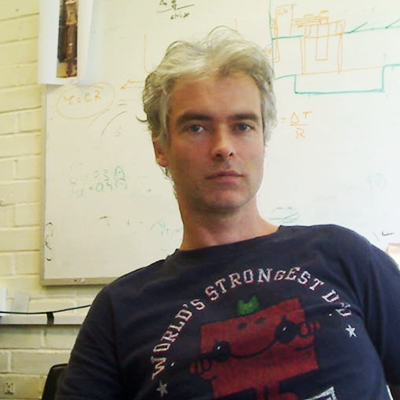
Andrew Casey
Research Fellow, Royal Holloway University of London; Devices Focus Area Team Member, SQMS
A member of the Royal Holloway ultra low temperature group, Dr. Andrew Casey was awarded an EPSRC Advanced Research Fellowship for work on “Novel NMR methodologies using DC SQUIDs applied to fundamental condensed matter physics and Biodiagnostics”.
This work relies on the use of Superconducting Quantum Interference Devices (SQUIDs), which operate as exquisitely sensitive flux to voltage transformers.
For fundamental condensed matter physics this sensitivity is exploited in order to investigate systems of extremely low spin density at ultralow temperatures. The aim of the current research in this area is to confine p-wave superfluid helium-3 in a cavity with a tuneable height comparable to the size of the cooper pair, around 70 nm for 3He at zero pressure. These structures then need to be cooled to below 1 mK to observe superfluidity, this is carried out using one of the groups nuclear demagnetisation cryostats. A novel SQUID based noise thermometer is being developed on this cryostat.
A parallel activity uses the same SQUID sensors with a broadband input coupling to measure signals from room temperature samples in magnetic fields below that of the Earth’s magnetic field. The aim of this research is to develop devices for NMR spectroscopy and magnetic resonance imaging that do not rely upon the large homogeneous superconducting magnet. This opens up possibilities to perform measurements in environments incompatible with current high field techniques.
